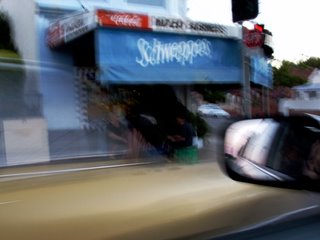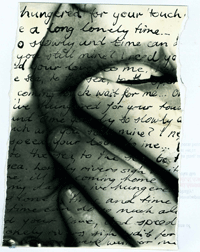The car radio was playing cheesy god songs.
Count your blessings, count them one by one.
You were singing along. I was considering the challenge. At that moment, I wouldn’t have even needed one hand:
A dirt road.
A full tank.
The promise of a revolution just beyond the dashboard.
Dust poured out from beneath the tires in a stream of red incense. It was only early afternoon and we were already relying heavily on tiger balm & cigarettes to make sense of anything.
It’s a funny kind of road trip that has you locked up in a stranger’s bedroom, sleeping on the floor, listening to hushed voices planning a mutiny through the thin weatherboard walls.
I felt that for these five days we had started our own little civilisation only 7km from the nearest city. Magical actions had been taken to change the functioning of the most necessary elements of daily life. The operations of time & language & emotion had been altered.
I had spent years learning the rules of the way these things worked back at the city. At first, I found it very difficult to adjust to this amended existence. I failed to master the motions to communicate, to react, to respond. I found myself neither exhausted nor energised, but with a faint ringing in my ears. I told myself it was the far off roar of the city.
I did not make friends with the other inhabitants, although we shared showers, toasters and all manner of disillusionments. I quickly gave up trying to look people in the eyes. Instead, I studied the identification cards that hung like simple bureaucratic nooses around their necks. From these documents I could garner requisite information in short periods of time:
Name.
Hometown.
Political allegiance.
The days here were not divided by regular patterns of light or time. Our schedule had three main elements:
1.We would wait in corridors for unconscionable periods of time. We were forbidden to speak of imagine any kind of future.
2. We would line up, seat ourselves on long rows of orange chairs, and choose another inhabitant to sit opposite us. We were close together, knees touching, our faces poised 2cm apart. We would then begin to scream abuse at one another. Until our skin was crimson with rage. Until empty tears streamed down our faces. Until we were shaking with a righteousness and disdain that transcended politics or love. This exercise was similar to the Orwellian notion of
Two Minutes Hate. Except this was more banal. Our ravings were incomprehensible, completely undirected and unguided. We spoke in tongues, in a language of apathy.
3. We would consume unfathomable amounts of food & alcohol. Sent into an epicurean delirium by our senseless outpourings. Having given everything of ourselves in the
Two Minutes Apathy, we emerged as dark empty basins ready to devour. We threw ourselves greedily into a large mess hall and proceeded to gorge. Filling the void of hours of expenditure with bread, potatoes, beer, fish and fruit. These were the only periods that laughter could be heard. Sometimes chants would break out, but they were quickly silenced, either as the perpetrators forgot the words, or fell over drunk, bloated, shivering slightly.
In the corridors I would continuously overhear people speaking about deals being made.
It’s all stitched up, they would say.
Everything has already been decided.
I took to carrying a small notebook around with me. I wrote down brief observations. I noted which party had broken with whom, which rivalries were sustained and which were destroyed. I wrote down some of the slogans printed on the back of the uniforms:
Could the last one out, please turn off the light.
These notes were primarily references for my own benefit, a small attempt to facilitate my optimal functioning. The notebook was soon confiscated from me. The pages were ripped out and it was thus returned. Two empty black covers and a spiral spine with nothing to bind.
I frequently wondered that if I watched long enough, I might begin to learn the codes of behaviour, rather than merely being relegated to mimicking them. Looking back on my time there, it still seems as if we were living in sign language.
There was no revolution.
On the last day, we considered burning down our camp. Leaving it in ashes like an Atlantis lost to the bush. Instead we simply abandoned it. Those stale grey walls ached for the colour of our bodies, but we left them cold & empty & returned to our respective cities. I had seen some reckless behaviour that I wanted you to know about.







